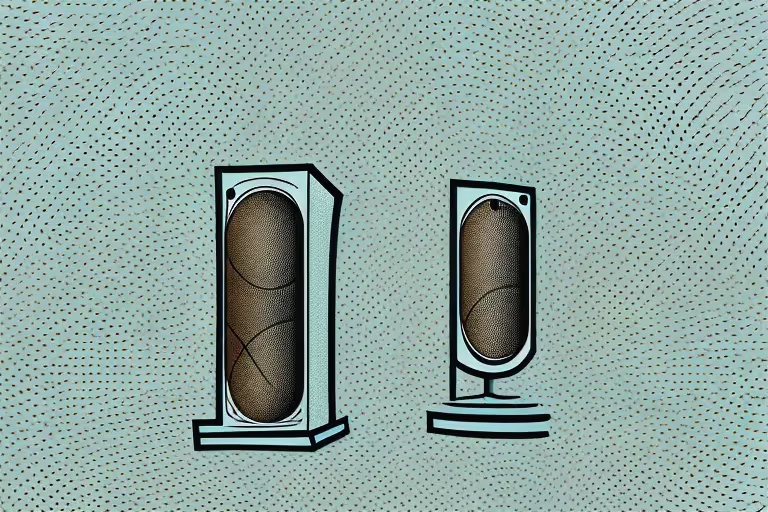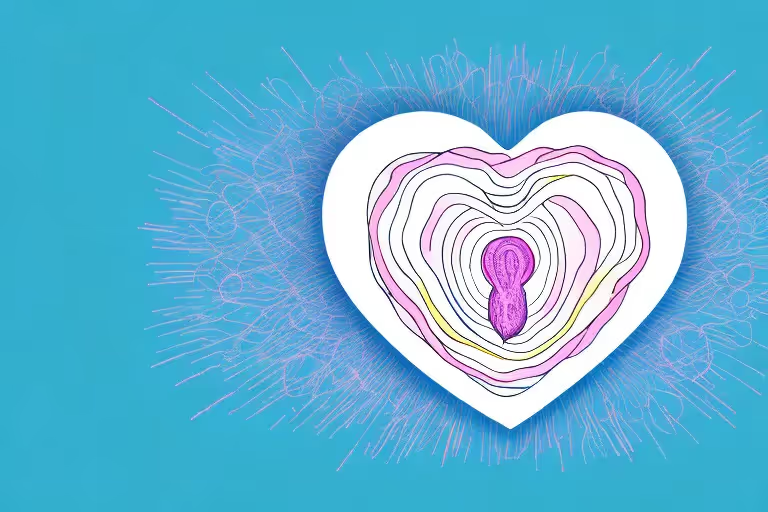Self-loathing is a common struggle that many individuals face at some point in their lives. It can stem from a variety of factors, such as past experiences, societal pressures, or even personal expectations. The journey towards self-acceptance may seem daunting, but it is indeed possible. By understanding the psychology behind self-loathing, identifying triggers, and implementing strategies, one can overcome self-loathing and find inner peace.
Understanding Self-Loathing
Before we can tackle self-loathing, it is essential to understand its roots. Self-loathing is a deep dislike or hatred towards oneself, often accompanied by feelings of worthlessness, guilt, or shame. The psychology behind self-loathing is complex and multifaceted. It can be influenced by past experiences or upbringing, negative self-talk, or societal norms. By delving into these different aspects, we can gain a better understanding of why self-loathing occurs.
Aura has the world’s largest and best collection of Meditations and hundreds of Coaches to choose from.
Try it Free!
The Psychology Behind Self-Loathing
Self-loathing often originates from negative experiences in our past. Trauma, abuse, or continuous criticism can leave lasting imprints on our self-esteem. When faced with these experiences, we can internalize negative beliefs about ourselves, which in turn, lead to self-loathing. It is important to recognize that these beliefs are not necessarily true and can be challenged.
For example, someone who experienced bullying throughout their childhood may develop a deep sense of self-loathing. The constant negative feedback and mistreatment can create a distorted self-perception, making them believe that they are unworthy of love and acceptance. This internalized belief can manifest in various ways, such as constantly seeking validation from others or engaging in self-sabotaging behaviors.
Moreover, societal norms and expectations can also contribute to self-loathing. In a world that often values external appearance, success, and perfection, individuals may feel inadequate if they do not meet these standards. This pressure to fit into societal molds can lead to a constant comparison with others and a never-ending cycle of self-criticism.
The Impact of Self-Loathing on Mental Health
The effects of self-loathing go beyond simply feeling down. It can significantly impact our mental health and overall well-being. Studies have shown a strong correlation between self-loathing and conditions such as depression, anxiety, and even self-destructive behaviors. Addressing self-loathing is therefore crucial in promoting mental well-being.
When someone experiences self-loathing, they may constantly berate themselves, focusing on their perceived flaws and mistakes. This negative self-talk can create a vicious cycle of self-deprecation, leading to feelings of hopelessness and despair. Over time, this can contribute to the development of mental health disorders.
Furthermore, self-loathing can also hinder personal growth and prevent individuals from reaching their full potential. The constant self-doubt and fear of failure can paralyze them, making it difficult to take risks or pursue their goals. This can lead to a sense of stagnation and dissatisfaction with life.
It is important to recognize that self-loathing is not a character flaw or a permanent state of being. With the right support and tools, individuals can learn to challenge their negative beliefs, cultivate self-compassion, and develop a healthier self-image. Therapy, self-reflection, and practicing self-care are some of the ways in which individuals can begin their journey towards self-acceptance and healing.
Identifying Triggers of Self-Loathing
Recognizing the triggers of self-loathing plays a vital role in overcoming it. By understanding what situations or thoughts lead us down the path of self-loathing, we can actively work towards avoiding or reframing these triggers.
Role of Past Experiences
Past experiences, particularly negative ones, can act as significant triggers for self-loathing. Whether it be a past failed relationship, a traumatic event, or an unhealthy upbringing, these experiences can shape how we view ourselves. The impact of past experiences on our self-perception is profound and multifaceted.
For instance, a failed relationship can leave us questioning our worthiness of love and affection. We may internalize the breakup as a reflection of our inadequacy, leading to self-loathing. Similarly, a traumatic event can shatter our sense of security and trust, leaving us feeling vulnerable and unworthy. These experiences can create deep-rooted beliefs about ourselves that fuel self-loathing.
However, it is important to note that not all past experiences are negative. Positive experiences, such as accomplishments and supportive relationships, can also shape our self-perception in a positive way. Celebrating our achievements and surrounding ourselves with uplifting individuals can counteract self-loathing tendencies.
Influence of Social Environment
The people we surround ourselves with can also impact our self-esteem and contribute to self-loathing. Negative or unsupportive social environments can exacerbate feelings of worthlessness and inadequacy. It is crucial to recognize these toxic relationships and seek positive influences.
When we are constantly surrounded by individuals who belittle our achievements, criticize our appearance, or undermine our abilities, it can be challenging to maintain a healthy self-image. The constant exposure to negativity can gradually erode our self-esteem, leading to self-loathing.
On the other hand, being in a supportive and nurturing social environment can have a profound impact on our self-perception. When we are surrounded by individuals who uplift us, celebrate our successes, and provide constructive feedback, we are more likely to develop a positive self-image and reduce self-loathing tendencies.
Moreover, cultivating a strong support system can help us navigate through difficult times and provide a safe space to express our emotions. Sharing our struggles with trusted friends or family members can alleviate the burden of self-loathing and foster a sense of belonging and acceptance.
Strategies to Overcome Self-Loathing
While overcoming self-loathing may not happen overnight, implementing strategies to challenge negative self-perception is a vital step towards self-acceptance.
Cognitive Behavioral Techniques
Cognitive Behavioral Therapy (CBT) is a widely used approach in addressing self-loathing. It involves identifying negative thought patterns and reframing them in a more positive and realistic light. By actively challenging distorted beliefs and replacing them with more constructive ones, individuals can slowly shift their mindset towards self-acceptance.
Mindfulness and Self-Compassion
Practicing mindfulness and self-compassion can also be powerful tools in overcoming self-loathing. By being present in the moment and acknowledging our emotions without judgment, we can cultivate self-acceptance and kindness towards ourselves. Engaging in activities that promote self-care and self-compassion, such as meditation or journaling, can aid in this process.
The Journey to Self-Acceptance
Embracing Imperfections
One of the key aspects of self-acceptance is embracing our imperfections. Nobody is perfect, and striving for unattainable ideals will only perpetuate self-loathing. Accepting that imperfections are part of being human allows us to recognize our worth beyond surface-level standards.
Cultivating Positive Self-Talk
The way we talk to ourselves has a significant impact on our self-perception. Cultivating positive self-talk involves replacing self-critical thoughts with words of encouragement and self-acceptance. By practicing self-affirmations and focusing on our strengths, we can gradually shift towards a more positive self-image.
Maintaining Progress and Preventing Relapse
Importance of Consistency in Practice
Overcoming self-loathing requires consistency and dedication. It is essential to maintain the strategies and practices that have been effective in promoting self-acceptance. Consistency in challenging negative thought patterns, engaging in self-care activities, and seeking support when needed can help solidify progress and minimize the risk of relapse.
Seeking Professional Help When Needed
While self-help strategies can be powerful, seeking professional help is sometimes necessary. Therapists and counselors can provide guidance and support tailored to individual needs. They can help individuals navigate the complexities of self-loathing and provide additional tools for self-acceptance.
In conclusion, overcoming self-loathing and finding self-acceptance is a journey that requires patience, self-reflection, and dedication. By understanding the psychology behind self-loathing, identifying triggers, and implementing strategies such as cognitive-behavioral techniques and mindfulness, individuals can take significant steps towards self-acceptance. Embracing imperfections and cultivating positive self-talk are vital aspects of this journey. Maintaining progress and seeking professional help when necessary are also crucial. Remember, self-loathing can be overcome, and everyone deserves to find self-acceptance and inner peace.
If you're interested in exploring strategies for self-acceptance further, consider trying the Aura Health app. With its guided meditations, cognitive-behavioral therapy exercises, and self-compassion practices, Aura Health offers a comprehensive approach to overcoming self-loathing and fostering self-acceptance. Download the app today and start your journey towards a healthier and happier self.
Aura is Your All In One App for Meditation, Mindfulness Wellbeing
Find peace every day with one app for your whole well-being. There is no one-size-fits-all solution to mental well-being. Aura is the first all-in-one wellness app that learns how to best help you. Discover an endless library of expert-created tracks for your well-being, all taught by the world’s best coaches, therapists, and storytellers. With Aura's personalized recommendations, you can find peace every morning, day and night.



.webp)






.avif)

%20(1).avif)


.avif)
.avif)
.webp)


.avif)


















































































































.avif)

















.svg)









